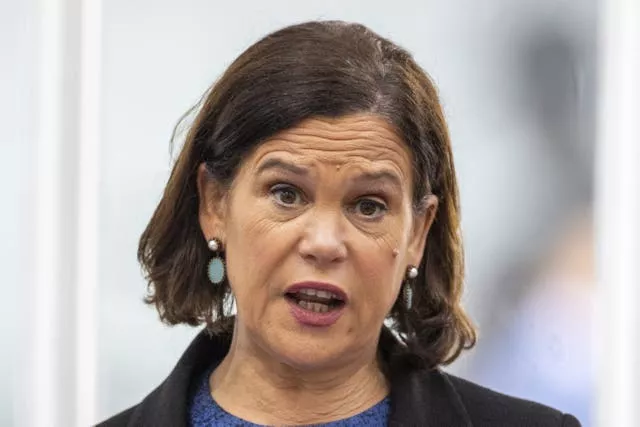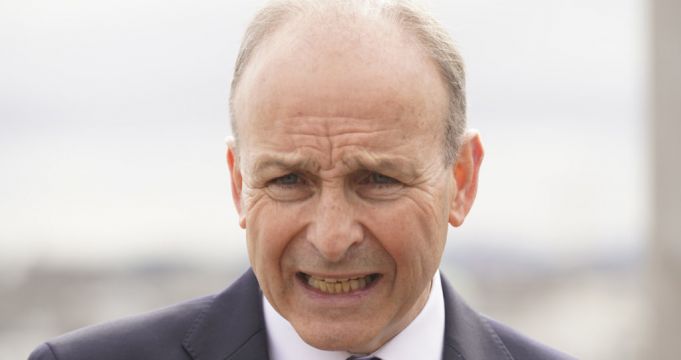The Taoiseach has warned there is only “uncertainty” for the rest of the year, as the country deals with the soaring cost of living.
Micheál Martin said he fully accepts the enormous pressure inflation is putting on families, and he is “very concerned” about low-income households.
The Fianna Fáil leader said that, while unemployment is low and the economy is performing well, the rise in inflation and soaring energy costs are having a negative effect on the public.
Despite pressure from opposition parties, the Government has so far resisted calls to bring in a mini-budget to deal with the financial stress on families.
Sinn Féin leader Mary Lou McDonald said urgent measures are needed, adding that the fuel allowance for low-income households is to end on Friday.
“It’s absolutely crucial that this is extended initially, at least for six weeks, and that eligibility for this payment is expanded,” she added.
“You can of course introduce a mini-budget to deliver direct cost-of-living payments, to cut rent, to cut childcare fees, to extend the fuel allowance, but you must also scrap the carbon tax increase due in May.
“Although you attach little importance to this increase, the backbenchers in your own party and, it seems, Fine Gael have a very different view on this matter.
“So I’m asking you to seize the moment, to introduce measures that will cushion households, help give them some breathing space, and of course to cancel the hike in carbon tax.”
She warned that “sitting this out” until October’s budget is not a “viable option”.

Mr Martin indicated that the increase in carbon tax, due to take effect from May 1st, will not be postponed.
“The only thing from now to the end of the year, as far as I can see, is uncertainty,” he said.
“I wouldn’t understate the economic recovery in Ireland and I fully accept the enormous pressures that inflation is putting on households, and we are very concerned about those on low incomes.
“The unemployment rate is at 5.2 per cent, which is as close to full employment.
“Those are the pluses, but there’s one huge negative at the moment, and it’s inflation.”
The Central Bank on Wednesday revised its forecast for growth in the economy downwards.
The bank said in its quarterly bulletin that inflation this year could peak at 8 per cent, and is expected to average out at 6.5 per cent for the year.
Social Democrats co-leader Catherine Murphy said the change in the forecast will heap additional pressure on workers and families.
She said household budgets have been “vaporised”, and the situation is particularly tough for those on low to middle incomes.
“Next month’s carbon tax increase will mean an average increase in household bills of €140 a month,” Ms Murphy added.
“VAT, I’m sure you will agree, is considerably more and ever increasing given the enormous price rise in energy, which provides an unprecedented windfall to Government.
“Last year alone, for example, the Government took in €3 billion more in VAT than it did in 2020 and a large chunk of that will be from energy costs.”
She queried whether the Government has received an update on its application for a VAT derogation to the European Council.
Mr Martin said it has asked for “more flexibility” around the energy tax directive and the VAT directive.
The State currently has a derogation on EU rules governing VAT and excise duty. The current VAT rate is 13.5 per cent; however if it falls below 12 per cent, it could be revised to the standard 23 per cent.
Mr Martin told the Dáil: “We have said to the Commission, prior to the last meeting, that we believe there should be flexibilities in terms of the current situation, that wouldn’t endanger the historic derogation we have.”
He said there is no guarantee the State would have to go to a 23 per cent VAT rate when the cost-of-living crisis ends, which is something the Government is “very anxious to avoid”.
“We put forward an amendment to the conclusions at the last meeting, which was accepted, in respect of endeavouring to head off that situation,” he added.
“The other side of the argument is that the Commission itself acknowledges that the market needs to be revisited in terms of the domination of gas in dictating the price of all energy products.”







